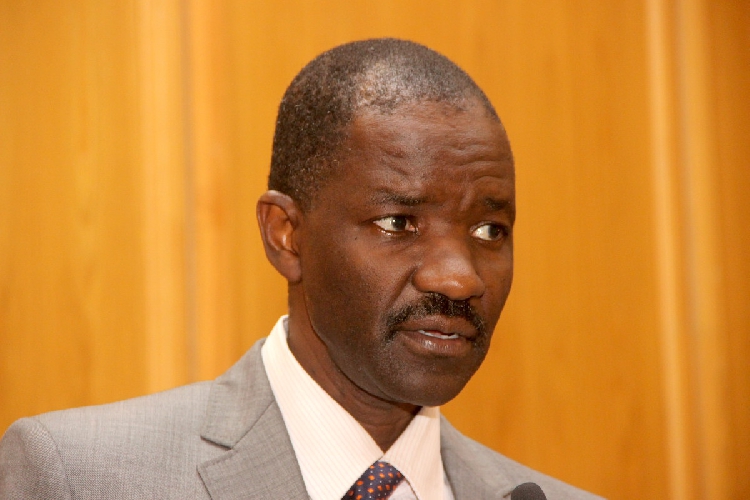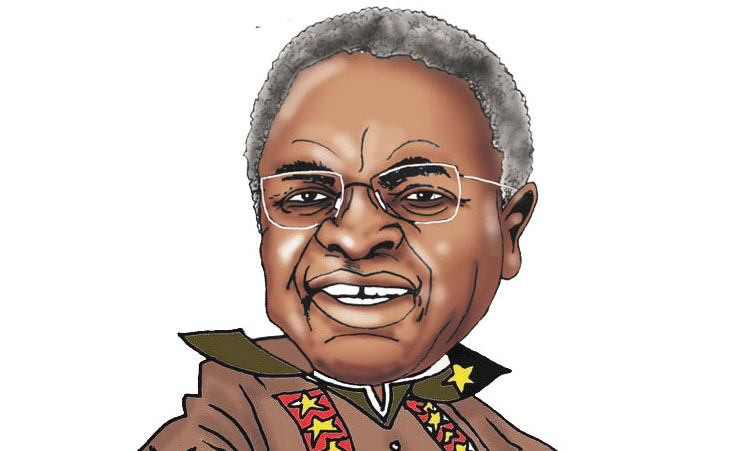HEALTH minister Bernard Haufiku yesterday revealed that they sneak condoms into correctional facilities.
Haufiku let the cat out of the bag when approached him for comment after the newspaper accompanied a group of law students to the Windhoek Correctional Facility where they educated inmates on their right to health on Friday.
Haufiku said inmates resort under what they call key populations. He said this implies that prisoners are at a very high risk of contracting the human immunodeficiency virus (HIV).
According to the minister, Namibians are in denial about men having sex with men, especially in correctional facilities.
“We want to break the backbone of the epidemic. How do we do that if we do not target everybody?” he asked.
Haufiku lashed out at what he called lawmakers’ tardiness to scrap the common-law crime of sodomy from the country’s law books.
“We cannot let so many people die because we do not want to change laws. Meanwhile, I have a target to save as many people, [namely to] reduce the infections by 75% by 2020.”
His mandate to fight the spread of the HIV has necessitated an “aggressive business as unusual approach”, he said.
It is a complete travesty that inmates’ right to health is compromised with the refusal to distribute condoms among them, Michaela Clayton, the director of the AIDSA and Rights Alliance of Southern Africa (Arasa), said upon enquiry yesterday.
According to her, “it is ludicrous”.
“They should have access to condoms – there is no question about it. The fact of the matter is that men have sex with men in prison.”
Amid widespread criticism that the Namibian Correctional Services (NCS) need to wake up, its spokesperson, deputy commissioner Eveline January, yesterday said: “The NCS does not support the distribution of condoms because sodomy is against the law.”
Clayton said this claim that distributing condoms among inmates would aid an offence and the allegation that handing out condoms would encourage same-sex sex to deprive prisoners of their fundamental right to health.
Arasa is a regional organisation working in 18 countries in southern and eastern Africa, together with 115 partners, and promote a human rights’ response to HIV and tuberculosis.
Some inmates said it is crucial that condoms are distributed to help curb the transmission of the HIV and other sexually transmitted infections (STIs).
The visit to educate inmates on their right to health was the initiative of a group of final-year law students from the University of Namibia (Unam).
Their law firm, Socrates law firm, visited Unit 4 at the main correctional facility on Friday as part of their community impact project as part of the legal aid module.
During her address, one of the firm members, Cardini Roman, said under international human rights’ law, “an inmate does not surrender all fundamental human rights upon entering prison.
The United Nations Universal Declaration of Human Rights guarantees the right to the highest attainable standard of health for everyone, including prisoners.
Confinement and marginalisation make prisoners, especially HIV-positive prisoners, more vulnerable to violations of fundamental human rights, particularly the right to the highest attainable standard of health.
It came to light that the law students were specifically barred from even raising the issue of the distribution of condoms during their visit to the inmates.
One inmate told that some of them use plastic bags during sex in the absence of condoms.
“They need to give us condoms to stop the spreading of diseases. They said it is impossible that men sleep with men, but it happens outside [prison], why would it not happen inside?”
Another inmate concurred: “They must at least allow us to protect ourselves.”
The focus of the visit of the Socrates law firm also fell on inmates who require access to special diets on account of ill-health.
About this, January said: “The NCS is trying their level best to comply with dietary requirements.”
Stay informed with The Namibian – your source for credible journalism. Get in-depth reporting and opinions for
only N$85 a month. Invest in journalism, invest in democracy –
Subscribe Now!










